Fabio Aru: 'We have to be pleased' with Tour de France so far
Italian champion just 18 seconds behind Froome ahead of week two
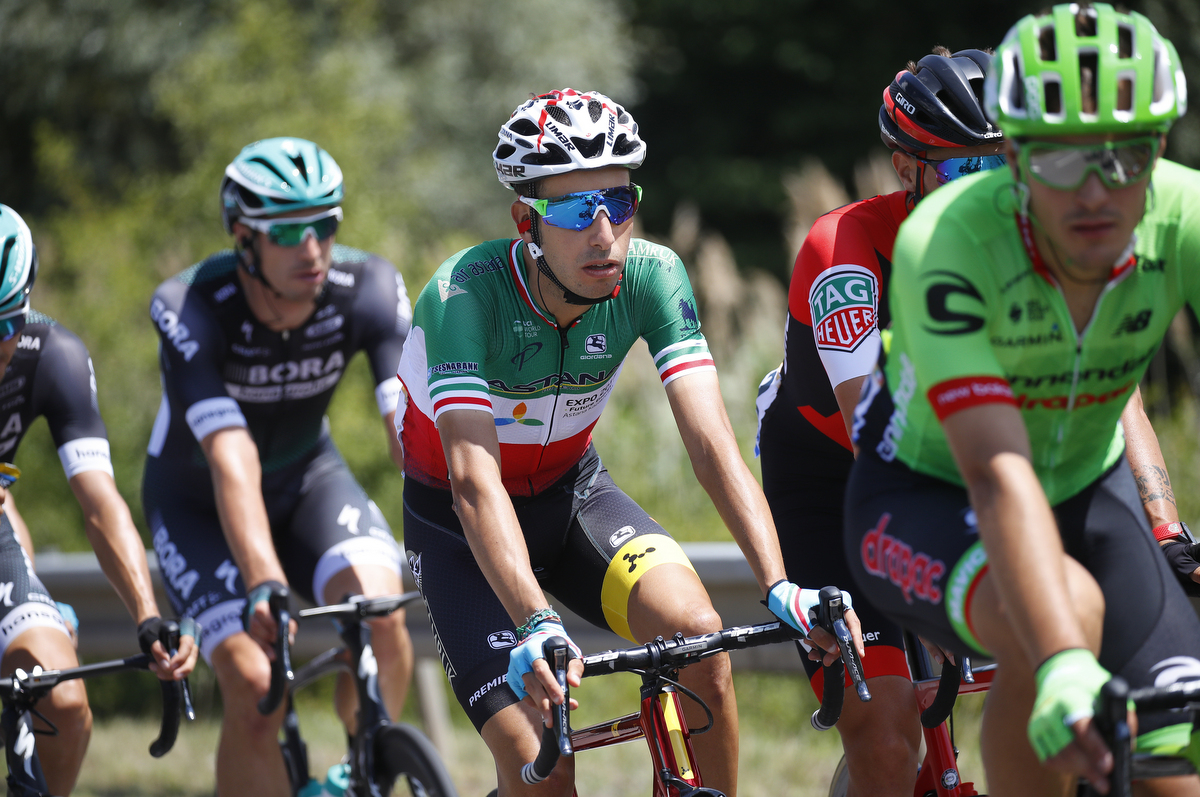
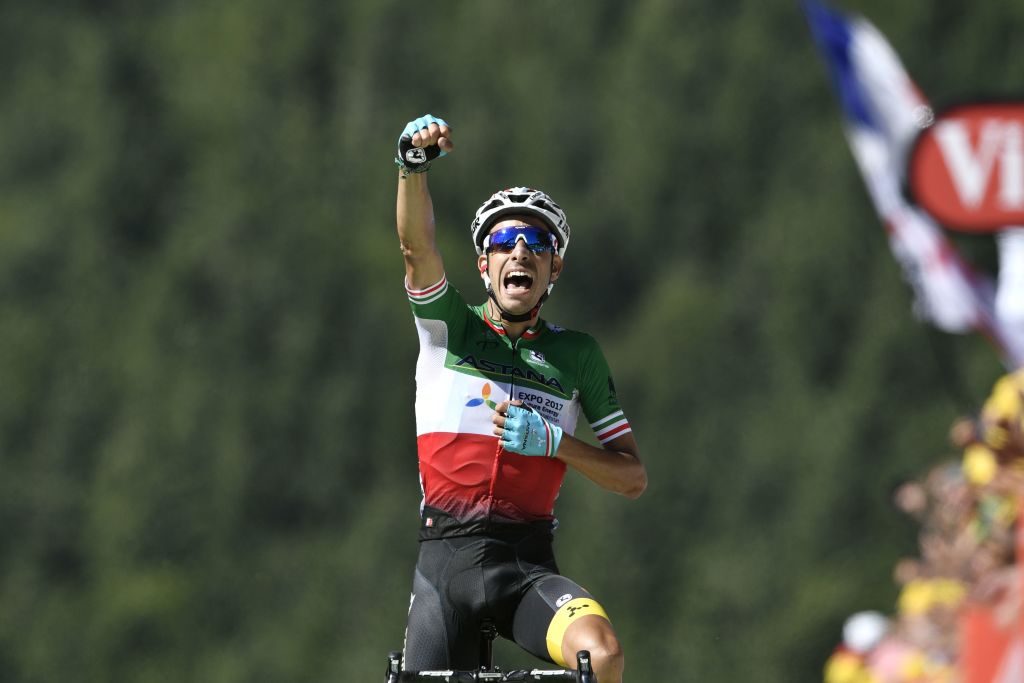
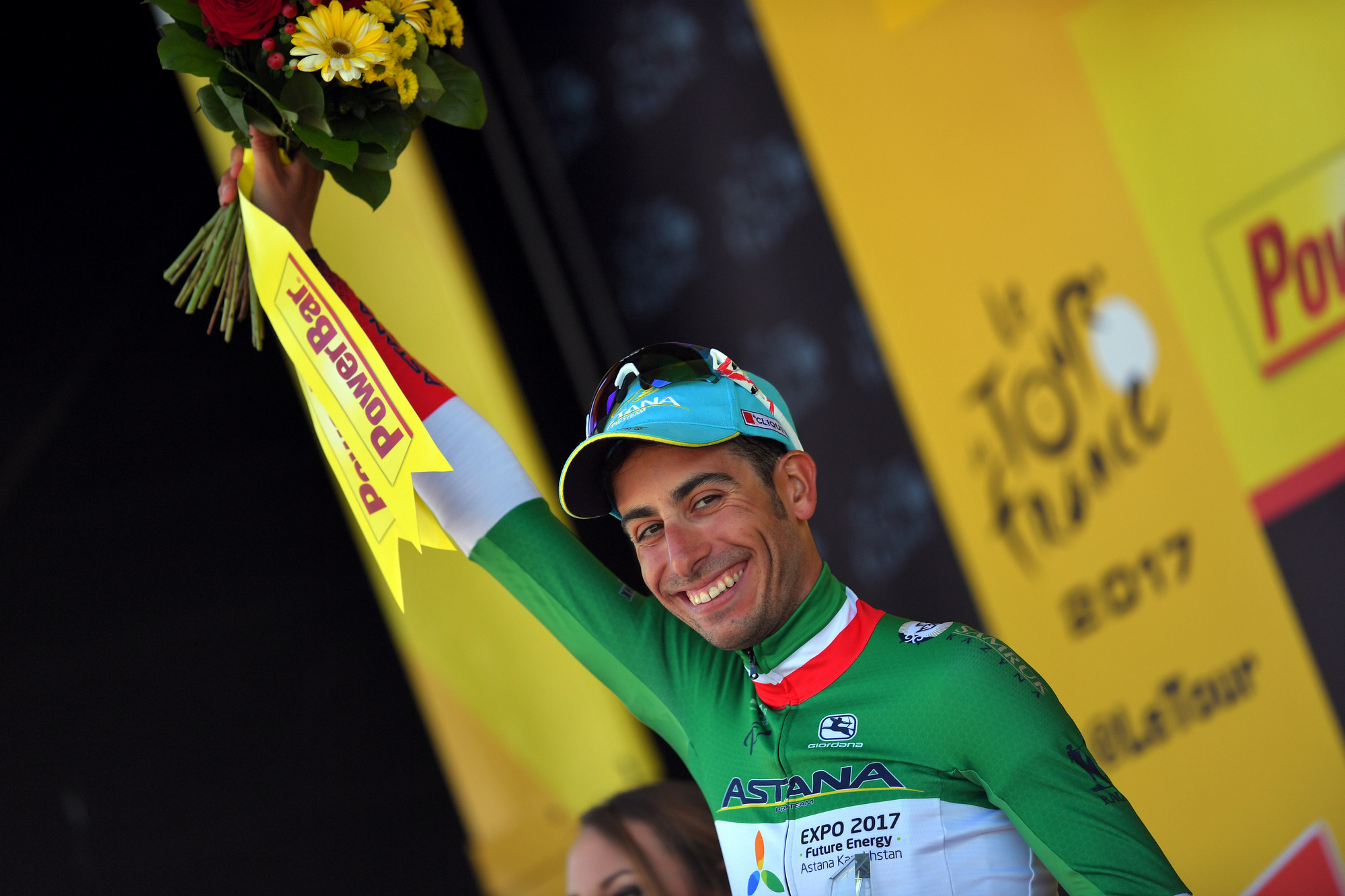
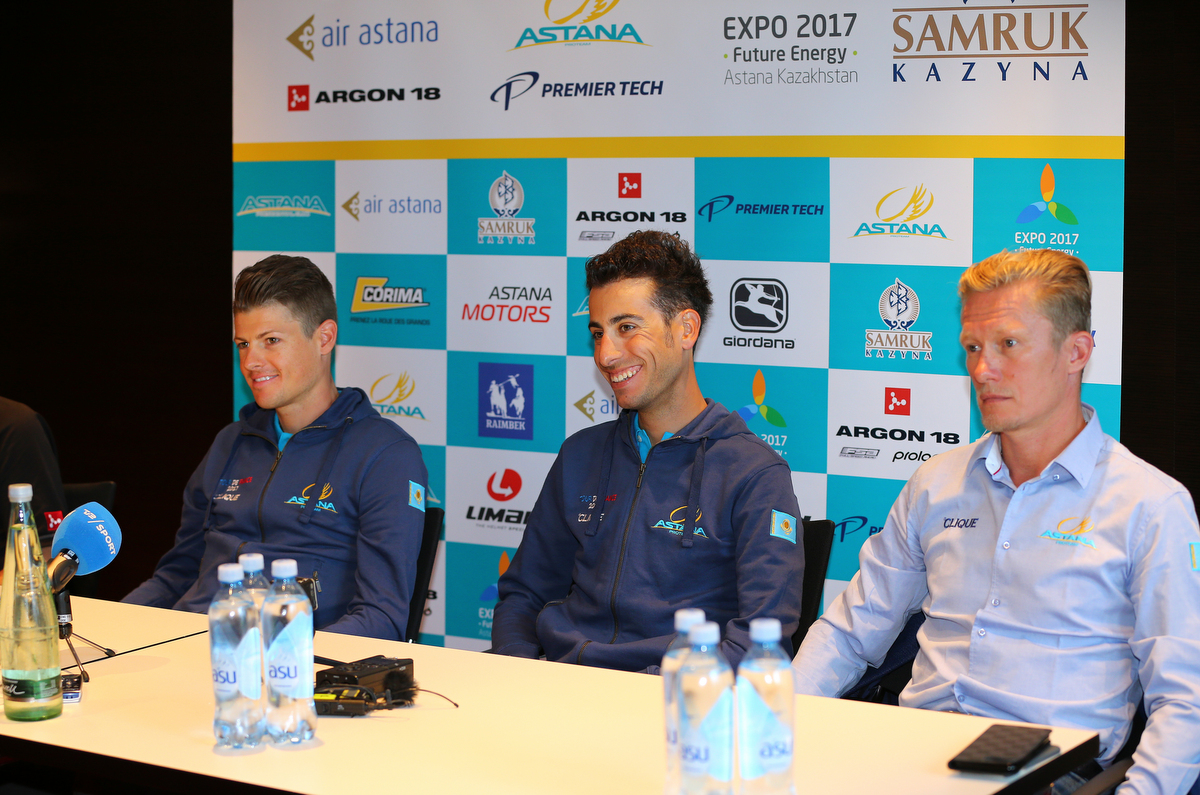
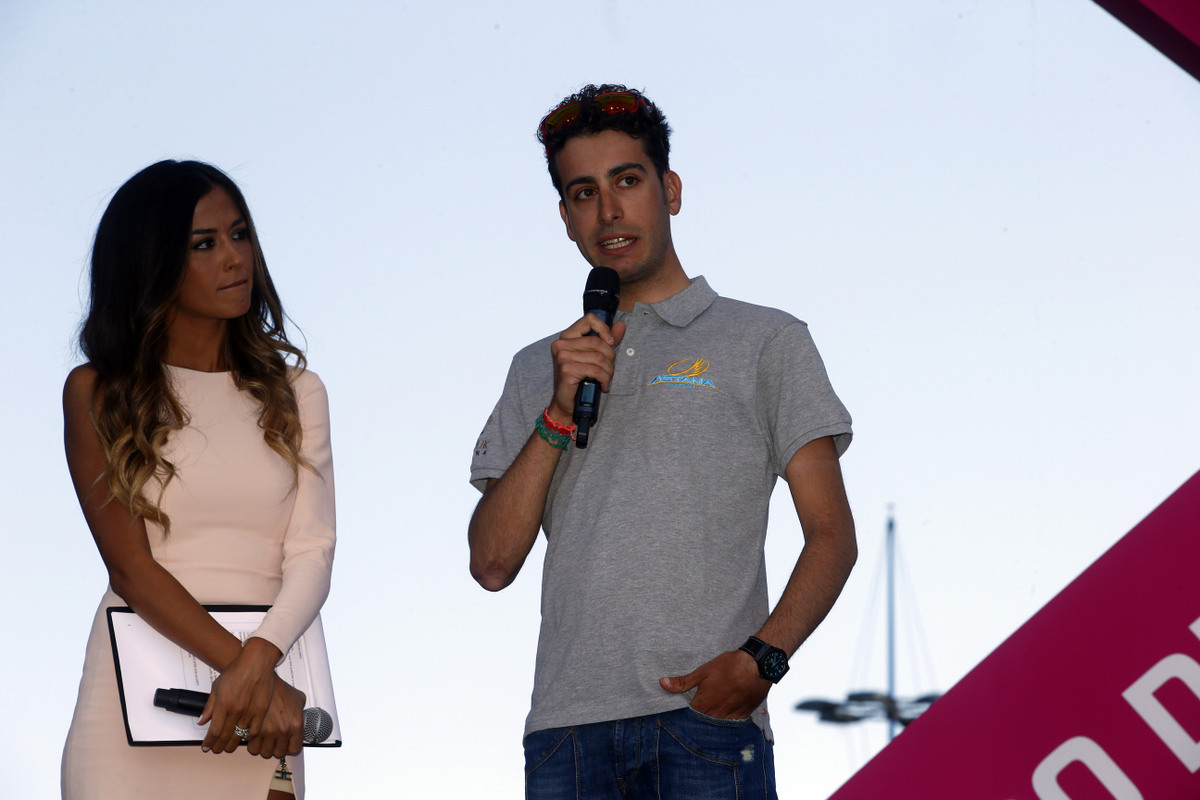
When Fabio Aru was asked during his rest day press conference if he would have settled beforehand to be in second place at this point in the Tour de France, the Astana rider's broad grin said more than his words.
"We've got to this rest day in the best way possible, and I'm very satisfied with how we're doing," Aru said. "There have been so many difficult days in this year's Tour that we have to be pleased. On the first stage alone, two riders crashed out. I didn't take that many risks, but right up to yesterday [stage 9], there were some very tough situations to handle."
Aru is currently lying second overall and has already won a mountaintop stage in a Grand Tour that was not, at the start of 2017, expected to figure on his race schedule. An April training crash ruled him out of the Giro d'Italia, however, and Aru's shift to focusing on the summer instead has paid off so far. Aru lies second overall, 18 seconds behind Chris Froome (Sky) after nine stages.
Nor has his progress in the Tour gone un-noticed amongst the Italian cycling tifosi, something Aru said he appreciated deeply. "We've been concentrating on the race, and as such you're not always aware of what's going on back home, but I've noticed a great deal of support on social networks. It's very important. Without support from the fans, we're nothing."
Aru spoke at length – getting on for three quarters of an hour – and without reacting testily to any difficult questions in a packed press conference on Monday's rest day. He was flanked at the top table by teammate Jakob Fuglsang, the Critérium du Dauphiné winner who is currently lying fifth overall in the Tour, and who will surely have a massive role to play in the Astana game plan in the days to come.
Aru and Fuglsang both were very much in the thick of the action in the final part of Sunday's brutally difficult stage through the Jura, and the Italian was in the thick of some controversy too, given he attacked just as the race leader Froome suffered a mechanical problem, and then collaborated with Fugslang and the Briton to chase down Romain Bardet (AG2R La Mondiale) in the finale.
"There was such a lot of action on the stage that we had opened up a gap on a lot of important riders, Alberto Contador, Nairo Quintana and Dan Martin," Aru said of the decision to work with Froome.
The latest race content, interviews, features, reviews and expert buying guides, direct to your inbox!
"We reached an agreement with Froome, that's true. We were not so much working to chase down Bardet as we were also to gain time on the guys chasing behind."
Some parallels can be drawn with the Vuelta a España last year, when a similar Anglo-Kazakh alliance took shape in the Formigal stage, when Quintana and Contador attacked, leaving Froome isolated behind. Sky and Astana, also caught out by the move, joined forces. Given Astana had far less to gain at that point in the Vuelta, it was perhaps much more difficult to comprehend than Sunday's joint pursuit of Bardet.
Froome
Shifting from one potentially thorny question to another, Aru repeated, once again, that there had been nothing untoward in his decision to attack on the Col du Chat just as Froome had a mechanical problem, because he had “not seen anything.”
"When I heard over the radio he'd lost contact, I stopped, I never saw what happened," Aru said. Nor, he repeated for the umpteenth time, was there any question of Froome 'seeking revenge' when he converged, unintentionally, on the Italian later on.
Aru was more guarded, in some ways, about his chances of beating Froome in the Tour, falling back on the usual selection of cliches. Froome is extremely strong, he argued, but there is a long way to go Paris, and he'll fight all the way to the end.
Aru was cagey, too, about dismissing riders like Contador and Quintana from the GC fight just yet, even though they lost important amounts of time on Sunday. "Lots of people were dropped, but I wouldn't want to single out any names, in a Grand Tour so many things can happen," Aru said.
"In a one-week race it could be possible for there to be a clearer verdict. But Contador could even launch a long-distance attack, he's not out of the game."
Asked about Alexandre Vinokourov and whether he felt the director's doping history threatened his team's current reputation, Aru was categorical. "That was in the past and I don't give that any thought. Astana have supported me, and been very loyal to me. They helped me become a pro, gave me a chance to be a rider, it's my lifelong team, and I'm grateful for that."
Looking ahead into the short-term, Aru recognised that the Pyrenean stages featured many unknown climbs for him and that the next phase of the Tour will be something of a voyage in the dark.
But the Italian's success rate so far has also brought him into new territory, and so far the 2015 Vuelta winner and Giro podium finisher has had no problems handling life at the top end in the Tour. With Fuglsang, too, as a second card for Astana to play, it's clear the Kazakh team are far from saying their last word in the race.
Alasdair Fotheringham has been reporting on cycling since 1991. He has covered every Tour de France since 1992 bar one, as well as numerous other bike races of all shapes and sizes, ranging from the Olympic Games in 2008 to the now sadly defunct Subida a Urkiola hill climb in Spain. As well as working for Cyclingnews, he has also written for The Independent, The Guardian, ProCycling, The Express and Reuters.
